Environment: Environmental Issues
Environmental Issues
France is a country that has been facing a wide range of environmental issues in recent years. These include:
- Climate change: France, like many other countries, is experiencing the impacts of global warming, including rising temperatures, sea levels, and more extreme weather events.
- Air pollution: France has struggled with high levels of air pollution, particularly in urban areas,due to factors such as transportation and industry.
- Water pollution: France’s water resources have been affected by pollution from industrial and agricultural activities, as well as from plastic waste and other forms of pollution.
- Biodiversity loss: France has seen a decline in biodiversity due to habitat loss, over-exploitation of resources, and the introduction of invasive species.
- Soil degradation: Soil degradation due to intensive agriculture and urbanization is a significant environmental issue in France.
- Waste management: France generates a large amount of waste, and proper management of this waste is a significant environmental challenge.
- Nuclear energy: France relies heavily on nuclear energy for its electricity, which has raised concerns about the potential for accidents and the disposal of nuclear waste.
- Chemical pollution: France’s industrial activities, as well as its intensive agriculture, is a significant source of chemical pollution that affects air, water, and soil. Overall, France is facing a range of environmental challenges, and it is important to take steps to reduce pollution and protect the environment.
Climate Change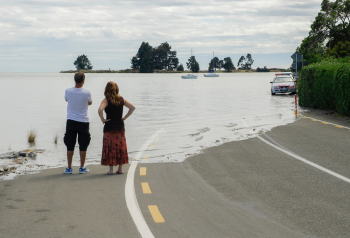
Climate change is a significant environmental issue in France, with a range of potential consequences for the country’s environment and society. The following are some of the effects of climate change on the environment in France:
- Rising sea levels: France has a long coastline, and rising sea levels due to global warming can lead to coastal erosion, flooding, and saltwater intrusion, which can damage infrastructure and impact coastal communities. For example, the city of Calais in the north of France has experienced coastal erosion due to rising sea levels, which has led to the loss of land and homes.
- Increasing temperatures: France is experiencing rising temperatures due to climate change, which can lead to heatwaves, droughts, and wildfires. These conditions can have a significant impact on agriculture and natural ecosystems, as well as on human health. For example, in the summer of 2019, France experienced a record-breaking heatwave, which resulted in a significant loss of crops and wildfires in the south of the country.
- More extreme weather events: Climate change can also lead to more extreme weather events, such as heavy rainfall and storms, which can cause flooding and landslides, as well as damage to infrastructure and homes. For example, in 2016, France experienced severe floods in the south and west of the country, which caused significant damage to homes, businesses, and infrastructure.
- Loss of biodiversity: Climate change can also lead to a loss of biodiversity as species struggle to adapt to changing temperatures and weather patterns. For example, in the French alps, the loss of snow cover due to rising temperatures has led to the decline of the Pyrenean desman, a species of mole that is adapted to living in cold, wet environments.
- Impact on agriculture: Climate change can also have a significant impact on agriculture, particularly due to changes in temperature and precipitation patterns. For example, the wine industry in France has been affected by rising temperatures, which have led to earlier harvests and changes in grape varieties.
In conclusion, climate change is having a significant impact on the environment in France, with a range of potential consequences for the country’s environment and society, including rising sea levels, increasing temperatures, more extreme weather events, loss of biodiversity and impact on agriculture. It is important for the government and individuals to take steps to reduce greenhouse gas emissions and adapt to the impacts of climate change in order to protect the country’s natural resources and the well-being of its citizens.
Air Pollution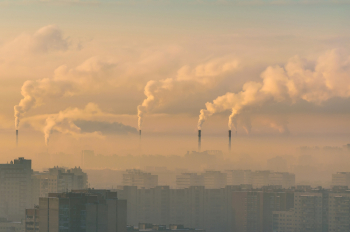
Air pollution refers to the presence of harmful substances in the air that we breathe, which can have negative effects on human health and the environment. France is facing a growing problem of air pollution, caused by various sources such as transportation, industry, and agriculture. The effects of air pollution on the environment in France are far-reaching and have a significant impact on the health and well-being of its citizens.
- Negative impacts on human health: Air pollution can have a range of negative impacts on human health, such as respiratory and cardiovascular diseases, and cancer. For example, exposure to high levels of particulate matter and nitrogen oxides from transportation can lead to respiratory problems, and can aggravate existing conditions such as asthma.
- Loss of biodiversity: Air pollution can also have a negative impact on biodiversity, as it can affect the behavior and reproduction of plants and animals, and can lead to the decline of populations. For example, acid rain can harm aquatic life, and can affect the reproduction and growth of forests.
- Climate change: Air pollution also contributes to climate change, as it can increase emissions of greenhouse gases such as carbon dioxide and methane, and can affect the radiation balance of the Earth.
- Damage to buildings: Air pollution can also damage buildings, as it can erode and discolor surfaces, and can affect the durability of materials.
The French government has taken steps to address the issue of air pollution, such as implementing stricter regulations for vehicle emissions, and promoting the use of public transportation and cleaner energy sources. However, more needs to be done to address this issue, such as increasing public awareness about the impacts of air pollution on human health and the environment, and investing in cleaner and more efficient technologies.
Water Pollution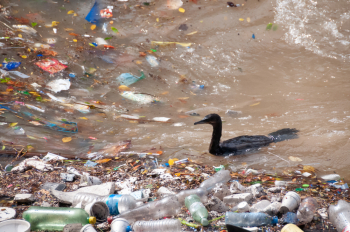
Water pollution refers to the presence of harmful substances in water bodies, which can have negative effects on human health and the environment. France is facing a growing problem of water pollution, caused by various sources such as agriculture, industry, and domestic sewage. The effects of water pollution on the environment in France are far-reaching and have a significant impact on the health and well-being of its citizens.
- Negative impacts on human health: Water pollution can have a range of negative impacts on human health, such as gastrointestinal and respiratory illnesses, and cancer. For example, exposure to high levels of microorganisms and chemicals in water sources can lead to water-borne diseases, and can affect the quality of drinking water.
- Loss of biodiversity: Water pollution can also have a negative impact on biodiversity, as it can affect the behavior and reproduction of aquatic plants and animals, and can lead to the decline of populations. For example, the presence of excess nutrients and chemicals in water bodies can harm fish and other aquatic life, and can affect the reproduction and growth of aquatic plants.
- Damage to ecosystems: Water pollution can also damage ecosystems, as it can affect the balance of organisms in water bodies, and can lead to the decline of aquatic habitats. For example, the presence of excess nutrients and chemicals in water bodies can lead to the overgrowth of algae, which can deplete oxygen levels and harm aquatic life.
- Climate change: Water pollution also contributes to climate change, as it can affect the radiation balance of the Earth, and can affect the water cycle.
The French government has taken steps to address the issue of water pollution, such as implementing stricter regulations for industrial and agricultural activities, and promoting the use of sustainable practices. However, more needs to be done to address this issue, such as increasing public awareness about the impacts of water pollution on human health and the environment, and investing in water treatment and conservation technologies.
Biodiversity Loss
Biodiversity refers to the variety of life on Earth and the ecosystems that support it. Biodiversity loss, also known as species extinction, refers to the decline in the number and variety of species. France is facing a growing problem of biodiversity loss, caused by various factors such as habitat destruction, over-exploitation of natural resources, and pollution. The effects of biodiversity loss on the environment in France are far-reaching and have a significant impact on the health and well-being of its citizens.
- Loss of ecosystem services: Biodiversity loss can lead to the loss of ecosystem services, such as pollination, pest control, water purification, and soil formation. For example, the loss of pollinators such as bees can affect the production of crops, and the loss of predators can lead to an increase in pest populations.
- Reduced resilience to disturbances: Biodiversity loss can also reduce the resilience of ecosystems to disturbances, such as natural disasters and climate change. For example, the loss of biodiversity can make ecosystems more vulnerable to invasive species and disease.
- Reduced recreational and cultural values: Biodiversity loss can also reduce the recreational and cultural values of natural areas, such as hunting, fishing, and aesthetic appreciation.
- Climate change: Biodiversity loss also contributes to climate change, as it can affect the carbon sequestration and water cycle, and can disrupt the balance of organisms.
The French government has taken steps to address the issue of biodiversity loss, such as implementing laws and regulations to protect endangered species and natural habitats, and promoting sustainable land use practices. However, more needs to be done to address this issue, such as increasing public awareness
Soil Degradation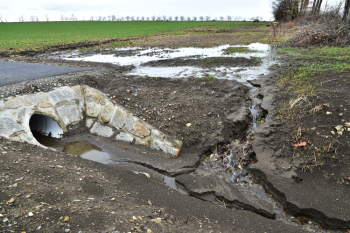
Soil degradation refers to the reduction in the quality and fertility of soil, which can have negative effects on the environment and human well-being. France is facing a growing problem of soil degradation, caused by various factors such as overuse, erosion, and pollution. The effects of soil degradation on the environment in France are far-reaching and have a significant impact on the health and well-being of its citizens.
- Reduced crop productivity: Soil degradation can lead to reduced crop productivity, as it can affect the availability of water and nutrients, and can make it difficult for plants to grow. For example, the overuse of fertilizers and pesticides can lead to soil acidification and nutrient depletion, which can affect crop yields.
- Loss of biodiversity: Soil degradation can also lead to a loss of biodiversity, as it can affect the survival of plants and animals that depend on healthy soil. For example, soil erosion can lead to the loss of habitats and can affect the reproduction and migration of certain species.
- Climate change: Soil degradation also contributes to climate change, as it can affect the carbon sequestration and water cycle, and can disrupt the balance of organisms.
- Increased risk of natural disasters: Soil degradation can also increase the risk of natural disasters, such as landslides, floods, and droughts, as it can affect the stability of soil and can increase the risk of erosion.
The French government has taken steps to address the issue of soil degradation, such as implementing laws and regulations to protect soil resources, and promoting sustainable land use practices. However, more needs to be done to address this issue, such as increasing public awareness about the importance of healthy soil and the impacts of soil degradation on human health and the environment, and investing in soil conservation technologies.
Waste Management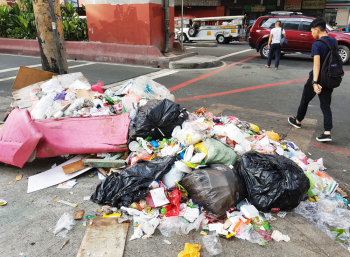
Waste management refers to the collection, transport, treatment, and disposal of solid and liquid waste materials. Improper waste management can have negative effects on the environment and human health. France is facing a growing problem of waste management, caused by various factors such as population growth, urbanization, and industrialization. The effects of waste management on the environment in France are far-reaching and have a significant impact on the health and well-being of its citizens.
- Pollution: Improper waste management can lead to pollution, as it can release harmful chemicals and toxins into the air, water, and soil. For example, the open burning of waste can release particulate matter and toxic gases, which can affect human health and the environment.
- Loss of biodiversity: Waste management can also lead to a loss of biodiversity, as it can affect the survival of plants and animals that depend on healthy ecosystems. For example, the presence of plastic waste in oceans can harm marine life and can affect the reproduction and migration of certain species.
- Climate change: Waste management also contributes to climate change, as it can affect the carbon sequestration and water cycle, and can disrupt the balance of organisms.
- Reduced quality of life: Improper waste management can also reduce the quality of life, as it can affect the aesthetics of an area and can create unpleasant smells and sights.
The French government has taken steps to address the issue of waste management, such as implementing laws and regulations to promote waste reduction, recycling, and composting. Additionally, they have implemented a ban on single use plastics and have set targets for waste reduction and recycling. However, more needs to be done to address this issue, such as increasing public awareness about the importance of proper waste management and the impacts of improper waste management on human health and the environment.
Nuclear Energy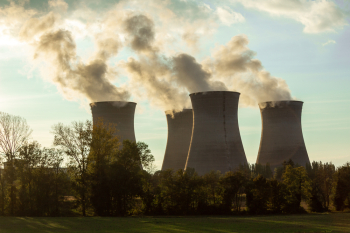
Nuclear energy is the energy that is released by nuclear reactions, which can be used to generate electricity. Nuclear energy is considered a low-carbon energy source, but it also has significant effects on the environment. France is one of the world's largest producers of nuclear energy, and it relies heavily on nuclear energy for its electricity generation. The effects of nuclear energy on the environment in France are far-reaching and have a significant impact on the health and well-being of its citizens.
- Radiation risks: Nuclear energy can pose radiation risks, as it can release harmful radiation in the case of accidents or malfunctions. For example, the Chernobyl and Fukushima nuclear accidents in Ukraine and Japan have caused significant releases of radioactive materials, which have affected the health of their respective local populations and the environment.
- Nuclear waste: Nuclear energy also generates nuclear waste, which is highly radioactive and can remain dangerous for thousands of years. Disposing of nuclear waste safely is a major challenge, as it requires long-term storage and isolation to protect human health and the environment.
- Environmental impacts of uranium mining: Nuclear energy also has environmental impacts associated with the extraction of uranium, which is the fuel used in nuclear power plants. Uranium mining can lead to habitat destruction, soil erosion, and water contamination, as well as health risks to workers and local communities.
- Proliferation: Nuclear energy can also lead to proliferation of nuclear weapons, as the same technology and materials used to generate nuclear energy can be used to make nuclear weapons.
The French government has taken steps to address the issue of nuclear energy, such as implementing safety regulations and standards for nuclear power plants, and investing in research and development of safer nuclear technologies. However, more needs to be done to address this issue, such as increasing public awareness about the potential risks and impacts of nuclear energy, and investing in alternative, renewable energy sources.
Chemical Pollution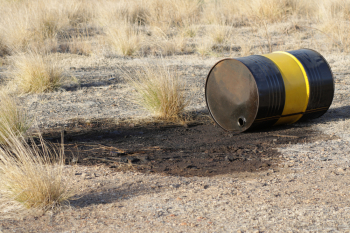
Chemical pollution refers to the presence of harmful chemicals in the environment, which can have negative effects on human health and the environment. France is facing a growing problem of chemical pollution, caused by various sources such as agriculture, industry, and domestic use. The effects of chemical pollution on the environment in France are far-reaching and have a significant impact on the health and well-being of its citizens.
- Negative impacts on human health: Chemical pollution can have a range of negative impacts on human health, such as respiratory and cardiovascular diseases, cancer, and developmental disorders. For example, exposure to high levels of pesticides and heavy metals can lead to neurological problems and cancer.
- Loss of biodiversity: Chemical pollution can also have a negative impact on biodiversity, as it can affect the behavior and reproduction of plants and animals, and can lead to the decline of populations. For example, exposure to pesticides can harm bees and other pollinators, which can affect the production of crops.
- Water pollution: Chemical pollution can also affect water quality, as it can contaminate rivers, lakes, and oceans, leading to the decline of aquatic life and affecting the quality of drinking water.
- Soil contamination: Chemical pollution can also affect soil quality, as it can contaminate soil with harmful chemicals, leading to reduced crop productivity and loss of biodiversity.
The French government has taken steps to address the issue of chemical pollution, such as implementing stricter regulations for industrial and agricultural activities, and promoting the use of sustainable practices. However, more needs to be done to address this issue, such as increasing public awareness about the impacts of chemical pollution on human health and the environment, and investing in technologies to reduce chemical pollution.
Copyright © 1993—2025 World Trade Press. All rights reserved.

 France
France 